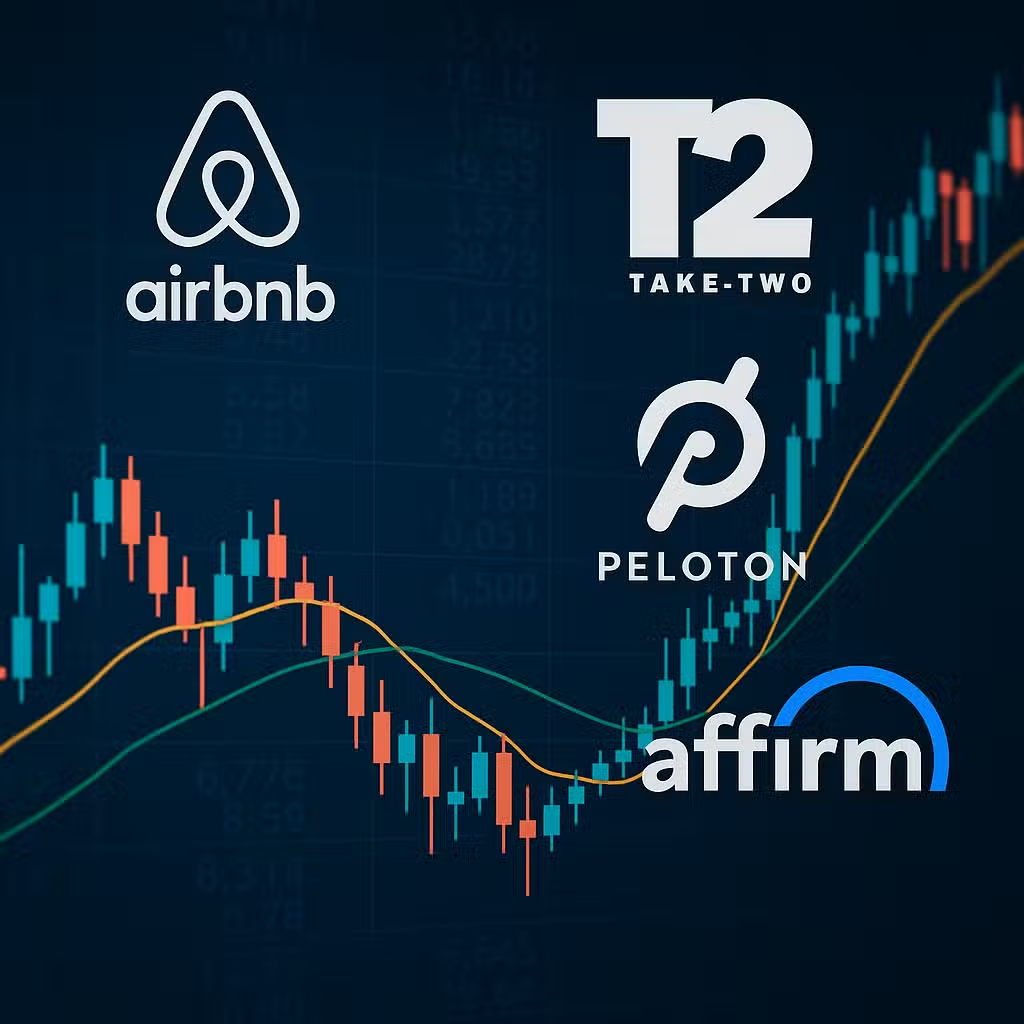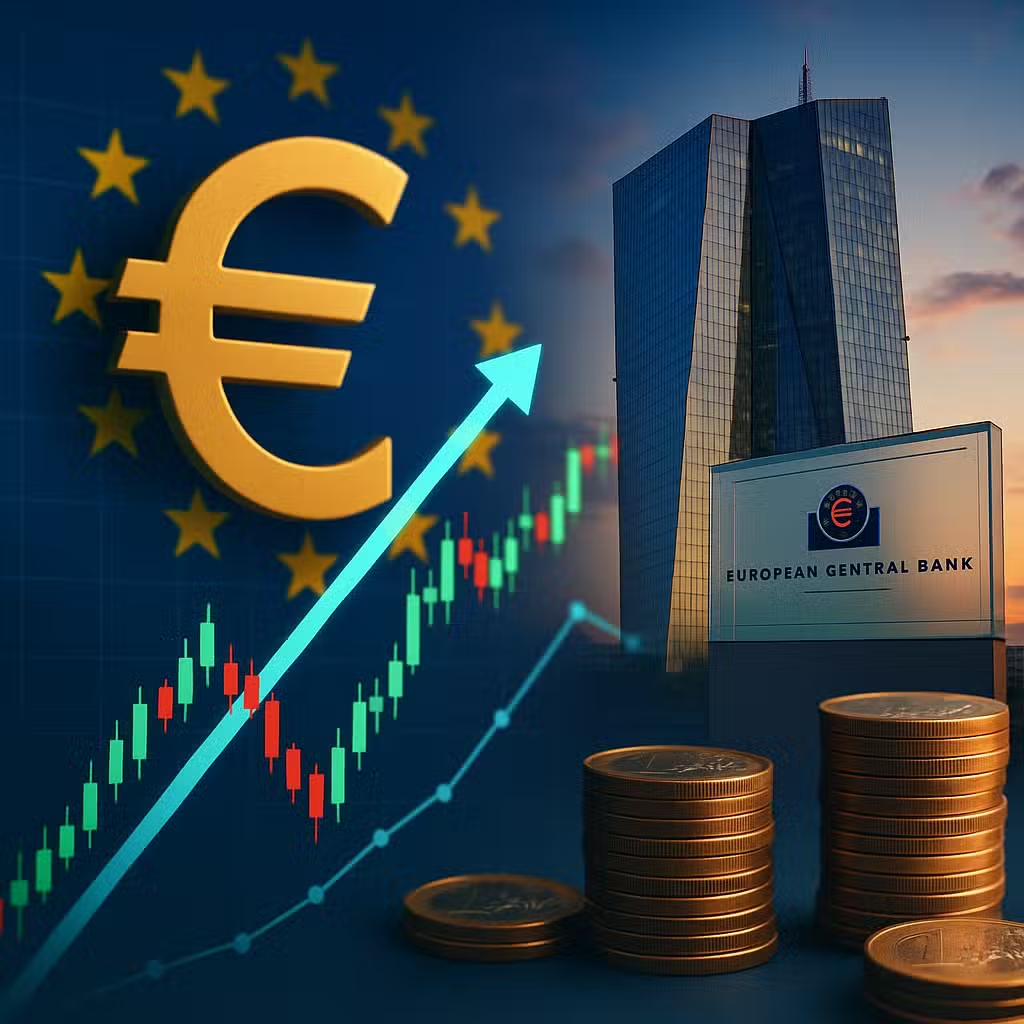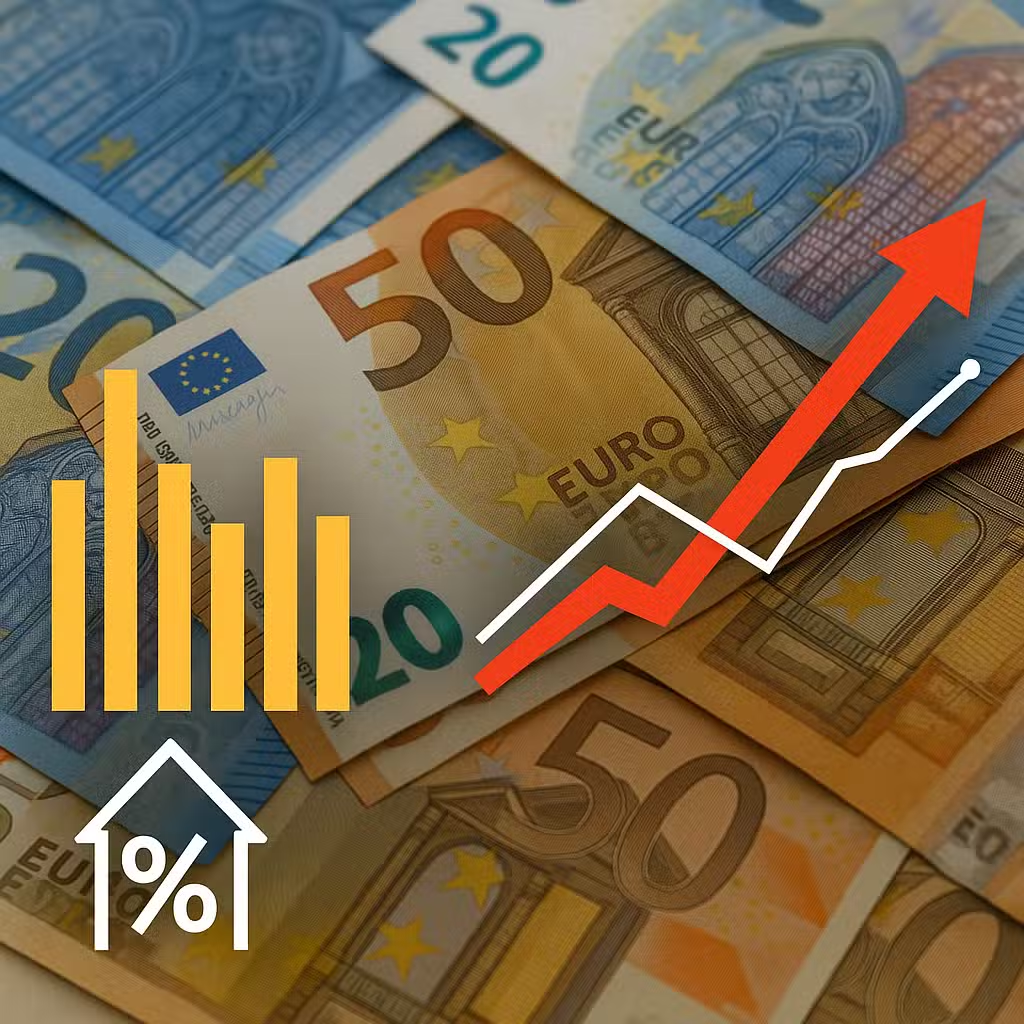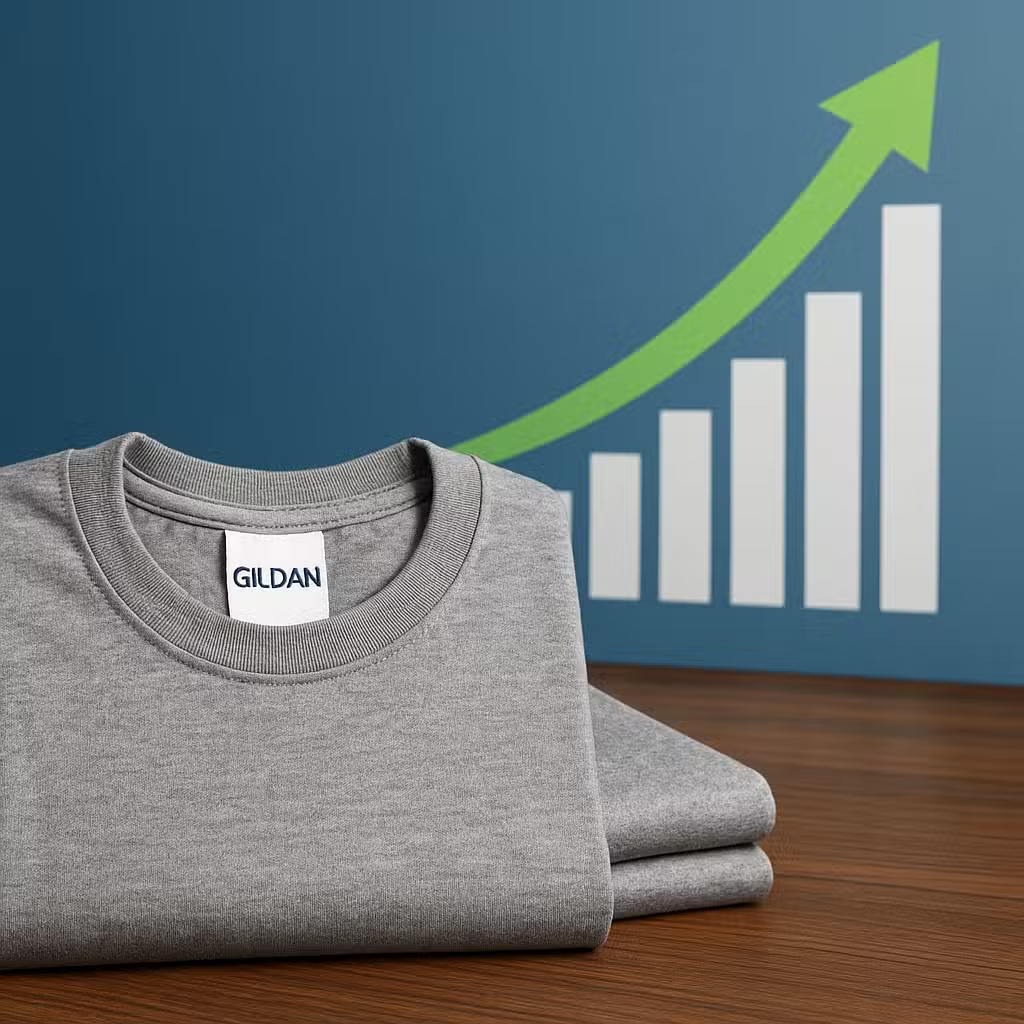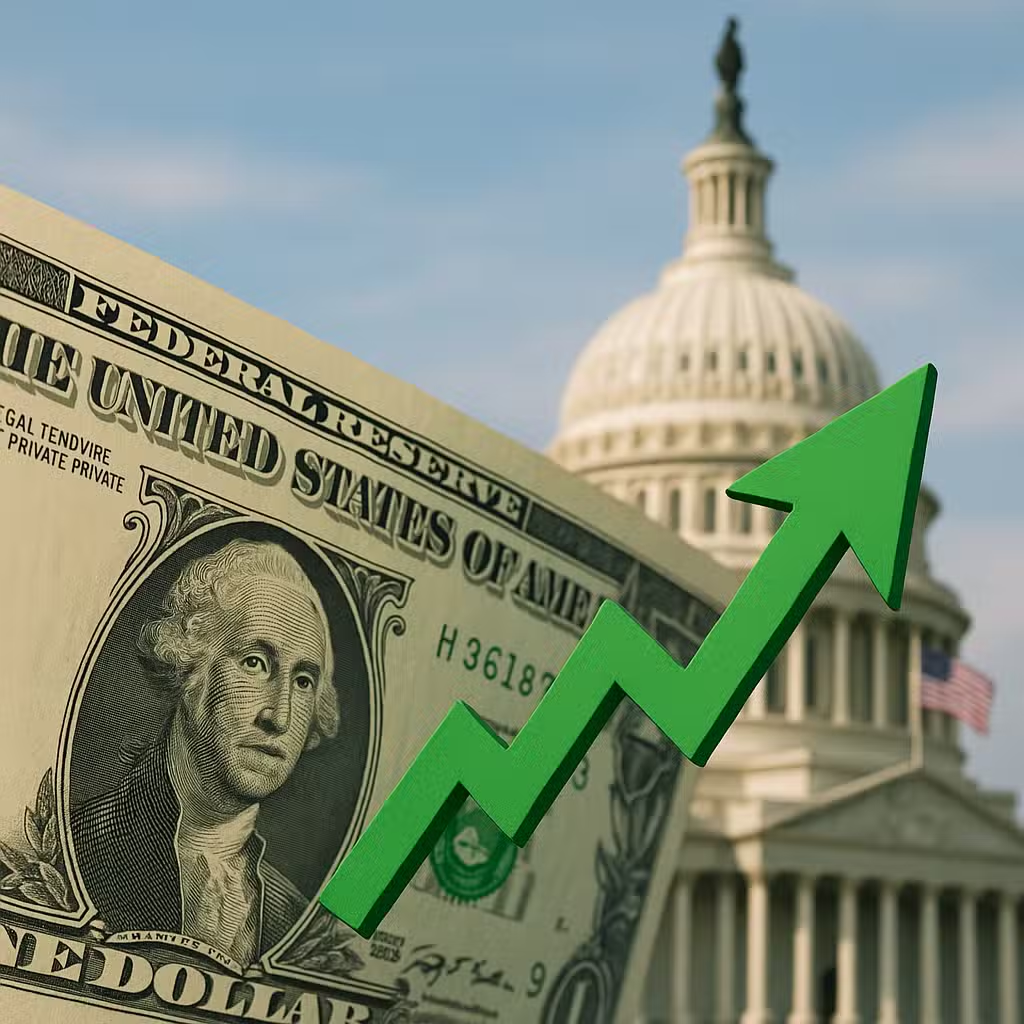After-Hours Stock Shifts: What Airbnb, Take-Two, Peloton, and Affirm Mean for Investors
Imagine checking your report card and seeing some grades go up while others drop—investors feel the same way when companies report their earnings. These after-hours moves can shake up the market and your investments, just like surprise grades can change your plans.
Winners: Companies That Surprised to the Upside
- Airbnb: The home-sharing giant saw its stock jump 5% after reporting strong earnings. Airbnb made $2.21 per share on $4.1 billion in revenue, beating expectations. Their future revenue guidance also topped Wall Street’s guesses, signaling steady travel demand.
- Affirm: This fintech company, known for buy-now-pay-later, soared over 12%. They brought in $933 million in revenue and earned 23 cents a share, much better than analysts thought.
- Peloton: Peloton’s stock popped 10%. They surprised everyone with a profit of 3 cents per share, as opposed to breaking even. Revenue was higher than expected, but paid memberships are still dropping.
- Dropbox: The cloud storage company rose nearly 5% after earning 74 cents a share on $634.4 million in revenue, topping forecasts.
- Monster Beverage: The energy drink maker’s stock climbed about 4% after beating on both earnings (56 cents per share) and revenue ($2.2 billion).
- Expedia: Travel demand helped Expedia’s stock surge 14%. They earned $7.57 per share, beating the $6.92 expected, and their outlook for next quarter is much rosier than most analysts thought.
Losers: Companies That Disappointed
- Take-Two Interactive: Video game fans and investors were let down when Grand Theft Auto VI was delayed again, pushing shares down 7%. Delays can hurt sales and shake confidence.
- DraftKings: Shares fell almost 4% after the sports betting company reported bigger losses and lower revenue than hoped.
- Trade Desk: Even though results beat expectations, shares dropped 2%. Sometimes, even good news isn’t enough if investors want more.
- Wynn Resorts: The casino company made more revenue than expected but missed on earnings, dropping shares over 1%.
- Block (Cash App): Block’s stock fell nearly 9% after missing earnings and revenue targets for the fourth and sixth straight quarters, respectively. This kind of losing streak can make investors nervous.
- Sweetgreen: The salad chain dropped more than 11% after lowering its sales forecast again. People are spending less on eating out, which hurts business.
Why Does This Matter for Investors?
When companies report earnings, it’s like getting a progress report. Good results can send stocks soaring, while disappointments can cause big drops. These ups and downs matter for your portfolio, especially if you own individual stocks.
According to a Nasdaq study, earnings season can cause as much as 80% of the market’s yearly movement. That means these reports often set the tone for the next few months—good or bad.
Bulls vs. Bears: The Pros and Cons
- Bulls (Optimists):
- Strong earnings suggest the economy is healthy and people are spending.
- Positive surprises (like Expedia and Affirm) can boost whole sectors, such as travel and fintech.
- Beating expectations often leads to higher stock prices and more investor confidence.
- Bears (Pessimists):
- Delays and missed forecasts (like Take-Two and Block) can signal trouble ahead.
- Some companies, like Peloton and Sweetgreen, have underlying problems even when they beat earnings (like dropping subscribers or lower sales).
- High expectations can lead to disappointment if companies can’t keep up momentum.
Investor Takeaway
- Don’t overreact to one earnings report—look for trends over several quarters.
- Diversify your portfolio to balance out winners and losers; don’t put all your eggs in one basket.
- Watch for companies that consistently beat or miss expectations—these patterns often signal future performance.
- Consider how sector trends (like travel’s rebound or consumer cutbacks) might affect your holdings.
- Stay curious—read company reports and trusted news sources to stay ahead of market moves.
For the full original report, see CNBC

